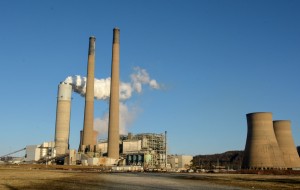From an Article by Stephen Caruso, Penn Capital Leader, April 22, 2022
Regulations forcing Pennsylvania power plant owners to pay for every ton of carbon they release into the atmosphere were finally published April 22nd.The rule’s publication comes two-and-a-half years after Gov. Tom Wolf set the regulatory gears in motion with an executive order. However, both supporters and opponents expect that further legal action could further delay enforcement of the rule.
This regional program, which also includes 11 other northeastern states, is known as the Regional Greenhouse Gas Initiative, or RGGI for short. Under the program, electricity producers purchase credits at quarterly auctions to cover their carbon emissions.
The most recent credit price was $13.50 a ton. The number of credits will then decline over time, providing an incentive for producers to cut emissions. Similar programs have been used to tackle acid rain. Pennsylvania plants are expected to participate starting in the third quarter of this year.
The revenue from these auctions then goes to the member states, which use it for a number of programs, from utility assistance and energy efficiency projects to subsidies for alternative energy. Pennsylvania is projected to receive about $187 million in the first year, however revenues are expected to decline over time.
In statements, environmental groups celebrated the move. “Finalizing this transformative climate policy is a victory for all of Pennsylvania and future generations,” Jacquelyn Bonomo, president & CEO of PennFuture said. “Pennsylvania is responsible for 4 percent of U.S. greenhouse gas emissions and 1 percent of global emissions. This cap-and-invest program will deeply cut into Pennsylvania’s pollution by limiting what comes from our dirtiest power plants.”
Gov. Wolf has proposed using the dollars to help transition workers and communities away from fossil fuel-dependent economies. However, the Republican-controlled General Assembly, with the backing of conservative free market groups and unions representing power plant workers, has instead tried to reject the initiative wholesale.
They’ve raised concerns that the program would increase electricity prices, hasten the closing of the state’s remaining coal power plants, and not reduce carbon emissions overall, but simply force them into other states. Studies are split on the exact impact of the initiative.
The regulations have been the center of a number of legislative skirmishes since Gov. Wolf announced he was entering it in Oct. 2019, saying it was needed to reduce the commonwealth’s carbon emissions and to fight climate change.
Pennsylvania is a top energy-producing state, according to federal data, and also among the top states in carbon emissions. Those legislative efforts to block RGGI often earned bipartisan support, but were unsuccessful at garnering the two-thirds majority needed to beat Wolf’s veto pen. The initiative had been blocked by a lower court order earlier this month, but the stay expired without a hearing, the environmental news site StateImpact Pennsylvania has reported.
When the last effort failed earlier this month, one western Pennsylvania coal plant that threatened to reduce operations said it had re-evaluated and found “a path forward,” but did not give specifics.

